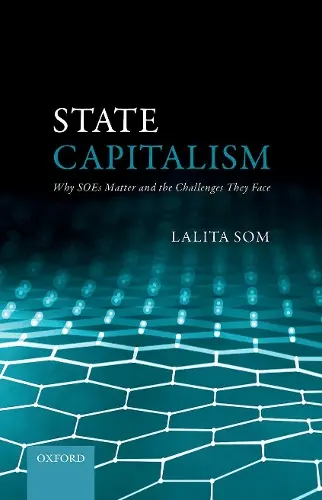

State Capitalism: Why SOEs Matter and the Challenges They Face
Publisher:
| Author:
| Language:
| Format:
Publisher:
Author:
Language:
Format:
₹1,695 Original price was: ₹1,695.₹1,356Current price is: ₹1,356.
In stock
Ships within:
In stock
ISBN:
Page Extent:
The crises emanating from the Global Financial Crisis and the COVID-19 Pandemic have underscored, the emergency role of the State and its smooth, seamless reactivation, for situations when private activity and markets are disrupted. In many countries, SOEs have been a crucial part in delivering on that effort as agents of the State. While SOEs are increasingly sought to play a role during emergency situations, evidence suggests that they misallocate capital and mismanage resources. This is indicative of the conflicts of interests in owning and regulating enterprises as well as between the commercial and non-commercial objectives of SOEs, crony capitalism, the private agenda of public officials, internal management of SOEs, the significant role played by state owned banks and financial institutions and the conflicts that arise in the State’s primary role vs. its ownership of enterprises. The studies of eight countries from different regions undertaken for this book, provide answers to these key policy questions related to state capitalism. Generalizing from the results of multi-country studies to arrive at universally applicable predictions, prescriptions, and policy recommendations, is inherently difficult. Individual countries are quite different in their socio-economic, historical, political, and institutional circumstances. So are their experiences, as the eight country studies highlight, even as the book attempts to extrude, from available research, the principal common characteristics of, and practices followed by, successful SOEs independently of country context. Among other conditions, the two most important conclusions that can be drawn from the country studies are that competition and regulation rather than ownership per se is key to efficiency.
The crises emanating from the Global Financial Crisis and the COVID-19 Pandemic have underscored, the emergency role of the State and its smooth, seamless reactivation, for situations when private activity and markets are disrupted. In many countries, SOEs have been a crucial part in delivering on that effort as agents of the State. While SOEs are increasingly sought to play a role during emergency situations, evidence suggests that they misallocate capital and mismanage resources. This is indicative of the conflicts of interests in owning and regulating enterprises as well as between the commercial and non-commercial objectives of SOEs, crony capitalism, the private agenda of public officials, internal management of SOEs, the significant role played by state owned banks and financial institutions and the conflicts that arise in the State’s primary role vs. its ownership of enterprises. The studies of eight countries from different regions undertaken for this book, provide answers to these key policy questions related to state capitalism. Generalizing from the results of multi-country studies to arrive at universally applicable predictions, prescriptions, and policy recommendations, is inherently difficult. Individual countries are quite different in their socio-economic, historical, political, and institutional circumstances. So are their experiences, as the eight country studies highlight, even as the book attempts to extrude, from available research, the principal common characteristics of, and practices followed by, successful SOEs independently of country context. Among other conditions, the two most important conclusions that can be drawn from the country studies are that competition and regulation rather than ownership per se is key to efficiency.
About Author
Reviews
There are no reviews yet.


Reviews
There are no reviews yet.